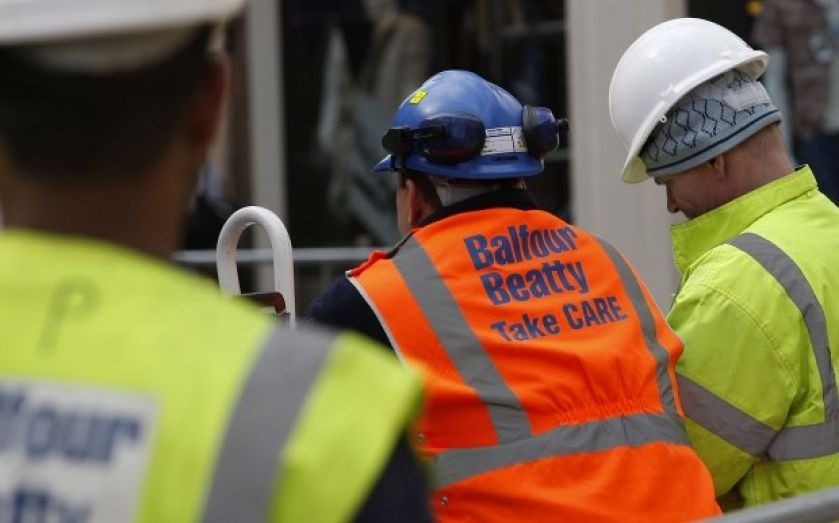| Updated:
Carillion and Balfour Beatty – what you need to know

This morning – a day ahead of the “put up or shut up” deadline – construction firm Balfour Beatty rejected a third bid from Carillion, despite the offer being increased by 15.5 per cent to £2.08bn.
The revised deal also offered Balfour shareholders 58.27 per cent of the combined company, up from 56.5 per cent – equivalent to a £200m upgrade. So why has it consistently said the deal is not in the interest of shareholders – and is there any way to resurrect it now?
One of the main sticking points is the sale of US design consultancy Parsons Brinkerhoff to Canadian firm WSP for $1.2bn (£717m), which Balfour refuses to ditch, saying it is close to a “successful conclusion”.
Carillion chairman Philip Green has said the board was “committed to moving forward in a constructive and collaborative way”, adding that the merger would create “a world class business and very significant value for the shareholders of both companies” – but this was not enough to sway Balfour.
The other major hurdle is Balfour's belief that the construction sector is set for a recovery. In its rejection statement this morning, the company said there were “considerable risks associated with the business plan, including the strategy to significantly reduce the scale of the UK construction business when it is posed to benefit from a recovery in the market”.
A recent update on the UK construction sector earlier this month by Markit/CIPS suggested the industry could be set for a boost thanks to "another steep increase in purchasing activity during July, thereby extending the current period of expansion to 14 months".
David Noble, CIPS group chief executive, said at the time: "In the short term at least, the outlook for the coming quarter is strong with the level of new orders continuing to rise and confidence for the year ahead growing steadily since June."
Not only does Balfour have the opportunity to grow the business back to the level of its market peers, sitting within a growth sector could see a considerable boost to share value. It is therefore not surprising that the board claims Carillion's revised offer “represents only a small value change” from the bid rejected on 11 August.
So where do the two businesses go from here?
Carillion has until 5pm tomorrow to make an offer Balfour Beatty can't refuse, but given the tone of the three rejections so far, the deal appears to be dead in the water, at least until the end of the year.
That said, having had an initial boost to the share price, this morning it had fallen around seven per cent. Bearing in mind this is a company that has lost two chief executives in a year, and issued four profits warnings, it may well have overstated its position. Green might have failed in his efforts this time around, but it could be a different story come 2015.